What is bloating?
A bloated stomach leaves you with a feeling of fullness, tightness and swelling in your abdomen (belly). You can have bloating after eating a heavy, rich meal or as a symptom of several different medical conditions.
Most people experience bloating at some time or another. Stomach bloating usually occurs when gas or air builds up in the intestines, leading to notable swelling in the belly area. Most of the time, bloating isn’t a cause for concern, but persistent, frequent or severe stomach bloating can be a sign of a more serious medical issue.
Access our expert-led video webinar to learn about common reasons for bloating
Symptoms of a bloated stomach
The most common symptom of bloating is a feeling of fullness in the abdomen, almost like you have an inflated balloon in your stomach. Other symptoms may include:
- Abdominal rumbling or gurgling
- Belching
- Distended abdomen (swelling in the stomach area)
- Gassiness
- Stomach pain
When to see a doctor
While it’s normal to experience stomach pain and bloating occasionally, see your doctor if your stomach feels bloated and you have any of the following symptoms:
- Blood in your stool
- Heartburn that isn’t alleviated with over-the-counter meds
- Nausea or vomiting
- Vaginal bleeding between periods or after menopause
- Weight loss with no known cause
It’s also a good idea to see your doctor if you’re experiencing extreme stomach bloating, a persistent stomachache or a hard, bloated stomach that has lasted for longer than a few days.
What causes bloating in the stomach?
The causes of stomach bloating can vary depending on the part of your stomach that’s affected. Upper stomach bloating is most often associated with swallowing too much air when eating or drinking, while lower stomach bloating can be related to gas produced during the digestive process.
Other causes for stomach bloating include:
- Acid reflux
- Blockages in the bowel or bladder
- Cancer of the stomach, ovaries, uterus, colon and pancreas
- Certain medications
- Crohn’s disease
- Diverticulitis
- Food intolerances and sensitivities
- Hormonal fluctuations
- Infection
- Irritable bowel syndrome
- Lactose intolerance
- Liver disease
- Menstruation
- Overeating
- Small intestine bacterial overgrowth
Stomach bloating and pain are also common after certain surgical procedures, such as a hernia repair, during which surgeons pump gas into the abdomen. This type of bloating typically goes away on its own in the days after surgery.
Foods and drinks that lead to stomach bloating
A bloated stomach is most often caused by excessive air or gas. Because of that, your eating habits can impact whether and when you experience bloating. Eating or drinking quickly can cause you to swallow more air while you’re gulping down food, which can lead to bloating. In addition, certain foods and drinks can increase the risk of bloating. They include:
- Beans: Contain sugars and fiber that can’t be broken down by the digestive system, leading to excess gas
- Carbonated beverages: Can introduce excess air into the digestive system or lead to excess gas
- Cruciferous vegetables such as broccoli, cauliflower or cabbage: Contain fiber and carbohydrates that are poorly absorbed by the digestive system and produce excess gas
- Dairy products: Contain lactose, which can cause excess gas in people with lactose intolerance
- Fruit such as apples, peaches, bananas and prunes: Contain sugars and fiber that aren’t easily digested, leading to excess gas
- Hard candy or chewing gum: Can introduce excess air into the digestive system
- Sugar-free candy or gum: Contain sugar alcohols, which can’t be fully digested, leading to excess gas
- Whole grains: Contain fiber and carbohydrates that can’t be broken down by the digestive system, leading to excess gas
How is bloating diagnosed?
Bloating is typically a symptom of another issue, and not usually a health concern on its own. If you are concerned about stomach bloating, your doctor will likely try to diagnose the underlying cause.
A comprehensive physical exam allows your doctor to understand your diet and lifestyle as well as your history of health conditions and treatments for those health issues. From there, they’ll decide whether you need more tests and, if so, what kind.
Medical history and exam
During your appointment, your provider will ask questions about your symptoms, including what you were eating in the hours before you experienced bloated stomach discomfort. You’ll be asked questions about your overall health, and your provider may pay particular attention to your digestive habits, including the frequency of bowel movements.
Your provider will also perform a physical exam, focusing on your abdomen and any symptoms you have along with bloating.
Imaging and tests
While there’s no specific diagnostic test for bloating, many different tests can be used to rule out or uncover underlying health issues that may be to blame. Based on the results of your physical exam, your doctor may order one of the following tests:
- Abdominal X-rays or a CT scan: These tests can be used to capture detailed images of the abdominal area, looking for potential causes of bloating, including inflammation.
- Blood tests: Different blood tests may be used to gather information about your overall health, check for celiac disease or lactose intolerance or look for markers of certain conditions or infections that could cause stomach bloating.
- Colonoscopy: This test is used to examine the colon and rectum, looking for abnormalities, including polyps that could be causing digestive issues or be a sign of colorectal cancer.
- EGD procedure (upper GI endoscopy): This test examines the esophagus and stomach to check for potential causes of bloating. Your doctor may also take small samples of tissue to examine them for abnormalities.
- Gastric emptying study: This test analyzes how quickly and efficiently food empties from the stomach. Food lingering in the stomach can cause bloating and other digestive symptoms.
- Lactose intolerance testing: If bloating seems to be related to milk or other dairy products, your doctor may order breath or blood tests that can diagnose an intolerance to lactose, a sugar found in dairy products.
- Stool analysis: Stool tests may be used to check for parasitic or bacterial infection, which can cause bloating. A specific test called a fecal occult blood test is used to detect small traces of blood in stool, which can be caused by colon polyps or colorectal cancer.
How can I reduce stomach bloating
In many cases, stomach bloating can be relieved by tweaking your eating habits and using home remedies to alleviate discomfort and swelling.
Dietary changes can help you prevent bloating from happening in the first place. If you experience frequent bloating, it may be helpful to keep a food diary of when you experience bloating and what you ate around that time. This can help you learn what foods may trigger bloating and other digestive symptoms, such as discomfort and stomach cramps.
-
Lifestyle changes
Adjusting your eating habits can go a long way toward preventing bloating. Sitting down while you eat and eating and drinking slowly may prevent you from taking in too much air as you swallow.
You can also avoid or reduce your intake of foods and drinks that cause bloating. Still, many of those foods, such as fruits, vegetables, beans and whole grains, are healthy and contain fiber, vitamins and other nutrients. To maintain a healthy diet without the bloat, you can try over-the-counter products that help your body process those foods.
Other lifestyle changes that might offer relief for a bloated stomach include:
- Avoiding straws: You can swallow too much air when drinking through a straw, so it may be helpful to skip straws and simply drink from a cup.
- The low FODMAP diet: FODMAPs are carbohydrates and sugars that are poorly absorbed by the digestive system and cause gas and bloating. It may help reduce frequent bloating, but talk to your doctor or a dietitian to see if it’s right for you.
- Quitting smoking: Research has shown that smoking damages the digestive system and is associated with abdominal pain, constipation and bloating.
- Regular exercise: Physical activity gets your digestive system moving, which lowers the risk of constipation and bloating.
-
Medication
Many over-the-counter and prescription medications can be used to help with bloating. Because these medications work to neutralize bloating in different ways, determining what’s causing your bloating is an important first step to finding the right medicine for a bloated stomach.
Medications that may help include:
- Activated charcoal: Charcoal tablets may be used to alleviate gas. They work by trapping gas bubbles, keeping gas from getting stuck in the intestines.
- Alpha-galactosidase: This medication is an enzyme that helps the body break down complex carbohydrates, which are in many of the foods that cause bloating, including beans.
- Antacids: These medications make stomach acid less acidic, which can alleviate heartburn and other digestive symptoms.
- Antibiotics: If you’re experiencing bloating as the result of a bacterial infection, an antibiotic can treat the underlying infection and alleviate bloating.
- Bismuth subsalicylate: This medication slows down foods as they travel through the digestive system, which reduces gas production and bloating.
- Lactase: This medication is an enzyme that helps the body process lactose, which is found in milk and other dairy products.
- Laxatives: These medications help the digestive system produce bowel movements, alleviating constipation, a frequent cause of bloating.
- Simethicone: This medication breaks up the bubbles in gas, which helps it pass through the digestive system without causing bloating and other symptoms.
Ask the expert: Is bloating a problem?
Learn more about common reasons for bloating and how bloating is treated from gastroenterologist Rajesh Shah, MD.
Find specialized care for stomach bloating near you
At Baylor Scott & White, we offer several locations for the treatment of diseases of the digestive system, including bloating, at gastroenterology centers across North and Central Texas. Our experienced team is ready to provide personalized care to help improve your quality of life. Whether you're seeking diagnostic testing, treatment options or ongoing support, we are here to help you.
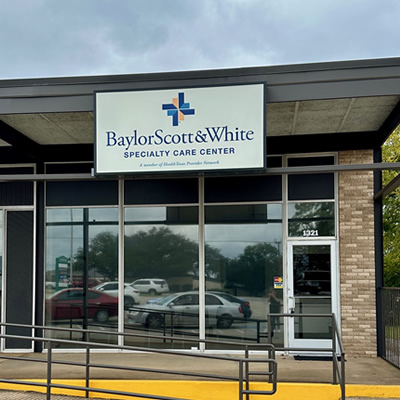
Baylor Scott & White North Texas Colon and Rectal Associates - Tyler
1321 S Beckham Ave , Tyler, TX, 75701

Baylor Scott & White Surgical Hospital - Sherman
3601 N Calais St , Sherman, TX, 75090
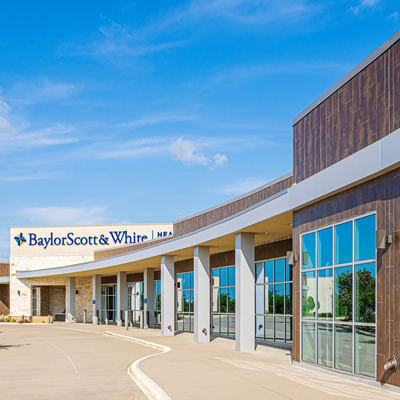
Baylor Scott & White Gastroenterology - Greenville
4400 Interstate 30 W Ste 300, Greenville, TX, 75402

Baylor Scott & White Digestive Diseases Group - Anna
450 N Standridge Blvd Ste 104, Anna, TX, 75409

Baylor Scott & White Digestive Diseases Group - McKinney
5236 W University Dr Ste 3800, McKinney, TX, 75071

Baylor Scott & White Digestive Diseases Group - McKinney
5236 W University Dr Ste 3800, McKinney, TX, 75071
- Monday: 8:30 am - 4:30 pm
- Tuesday: 8:30 am - 4:30 pm
- Wednesday: 8:30 am - 4:30 pm
- Thursday: 8:30 am - 4:30 pm
- Friday: 8:30 am - 4:30 pm

Baylor Scott & White Medical Center - McKinney
5252 W University Dr Highway 380 at Lake Forest Drive, McKinney, TX, 75071
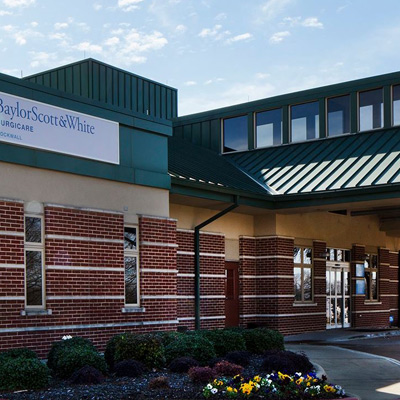
Baylor Scott & White Surgicare - Rockwall
825 W Yellowjacket Ln , Rockwall, TX, 75087
- Monday: 6:00 am - 5:00 pm
- Tuesday: 6:00 am - 5:00 pm
- Wednesday: 6:00 am - 5:00 pm
- Thursday: 6:00 am - 5:00 pm
- Friday: 6:00 am - 5:00 pm
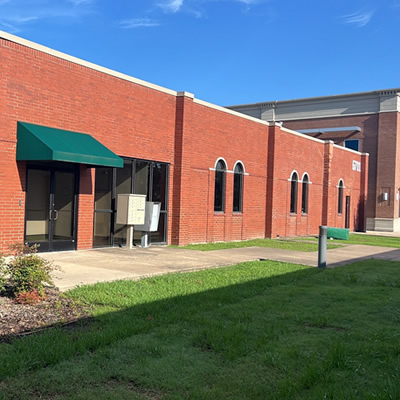
Baylor Scott & White Gastroenterology - Lake Pointe
6705 Heritage Pkwy Ste 203, Rockwall, TX, 75087
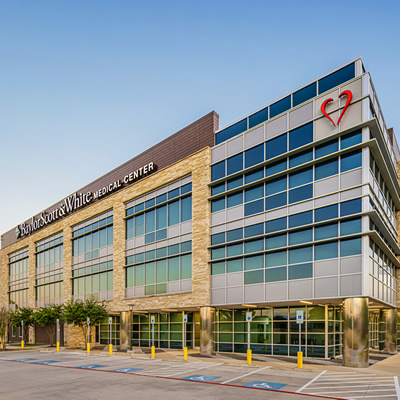
Baylor Scott & White Medical Center - Lake Pointe
6800 Scenic Dr , Rowlett, TX, 75088

Baylor Scott & White Digestive Diseases - Prosper
111 S Preston Rd Ste 10, Prosper, TX, 75078
- Monday: 8:30 am - 4:30 pm
- Tuesday: 8:30 am - 4:30 pm
- Wednesday: 8:30 am - 4:30 pm
- Thursday: 8:30 am - 4:30 pm
- Friday: 8:30 am - 4:30 pm
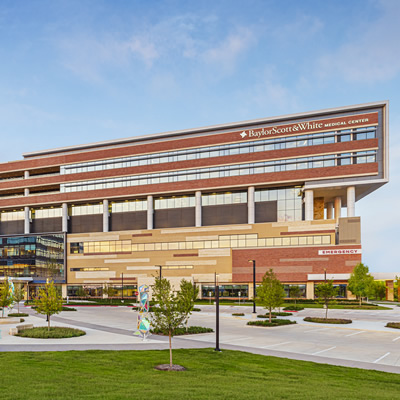
Baylor Scott & White Medical Center - Frisco at PGA Parkway
7600 Better Way , Frisco, TX, 75033

Baylor Scott & White Digestive Diseases - Centennial
4461 Coit Rd Pav 2, Ste 401, Frisco, TX, 75035
- Monday: 8:30 am - 4:30 pm
- Tuesday: 8:30 am - 4:30 pm
- Wednesday: 8:30 am - 4:30 pm
- Thursday: 8:30 am - 4:30 pm
- Friday: 8:30 am - 4:30 pm
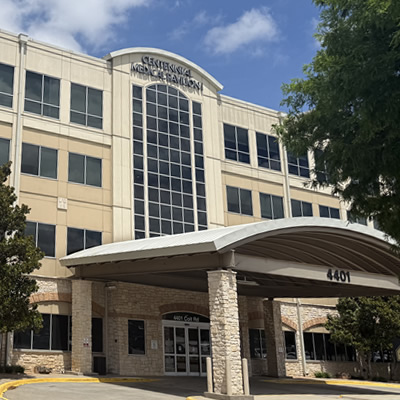
Baylor Scott & White Surgicare - Centennial
4401 Coit Rd Ste 100, Frisco, TX, 75035
- Monday: 7:00 am - 5:00 pm
- Tuesday: 7:00 am - 5:00 pm
- Wednesday: 7:00 am - 5:00 pm
- Thursday: 7:00 am - 5:00 pm
- Friday: 7:00 am - 5:00 pm

Baylor Scott & White Medical Center - Centennial
12505 Lebanon Rd , Frisco, TX, 75035

Texas Endoscopy - Independence Medical Village
8080 Independence Pkwy Ste 160, Plano, TX, 75025
- Monday: 6:00 am - 5:00 pm
- Tuesday: 6:00 am - 5:00 pm
- Wednesday: 6:00 am - 5:00 pm
- Thursday: 6:00 am - 5:00 pm
- Friday: 6:00 am - 5:00 pm

Baylor Scott & White Digestive Diseases Group - Garland
7217 Telecom Pkwy Ste 300, Garland, TX, 75044
- Monday: 8:00 am - 5:00 pm
- Tuesday: 8:00 am - 5:00 pm
- Wednesday: 8:00 am - 5:00 pm
- Thursday: 8:00 am - 5:00 pm
- Friday: 8:00 am - 5:00 pm

Baylor Scott & White North Texas Colon and Rectal Associates - North Garland
7217 Telecom Pkwy Ste 100, Garland, TX, 75044

Baylor Scott & White Surgicare - North Garland
7150 N President George Bush Hwy Ste 101, Garland, TX, 75044
- Monday: 6:00 am - 5:00 pm
- Tuesday: 6:00 am - 5:00 pm
- Wednesday: 6:00 am - 5:00 pm
- Thursday: 6:00 am - 5:00 pm
- Friday: 6:00 am - 5:00 pm

Baylor Scott & White Digestive Diseases Group at The Star
3800 Gaylord Pkwy Ste 910, Frisco, TX, 75034
- Monday: 8:00 am - 5:00 pm
- Tuesday: 8:00 am - 5:00 pm
- Wednesday: 8:00 am - 5:00 pm
- Thursday: 8:00 am - 5:00 pm
- Friday: 8:00 am - 5:00 pm

Baylor Scott & White Digestive Diseases at The Star
3800 Gaylord Pkwy Ste 910, Frisco, TX, 75034
- Monday: 8:30 am - 4:30 pm
- Tuesday: 8:30 am - 4:30 pm
- Wednesday: 8:30 am - 4:30 pm
- Thursday: 8:30 am - 4:30 pm
- Friday: 8:30 am - 4:30 pm
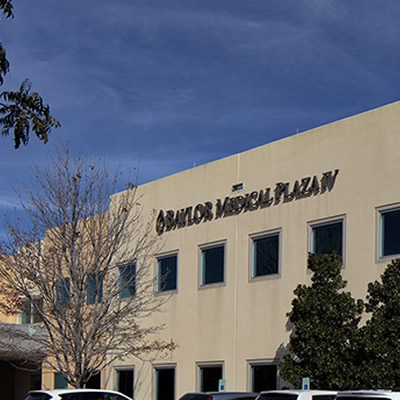
Baylor Scott & White Surgicare - Garland
530 Clara Barton Blvd Ste 100, Garland, TX, 75042
- Monday: 6:00 am - 5:00 pm
- Tuesday: 6:00 am - 5:00 pm
- Wednesday: 6:00 am - 5:00 pm
- Thursday: 6:00 am - 5:00 pm
- Friday: 6:00 am - 5:00 pm
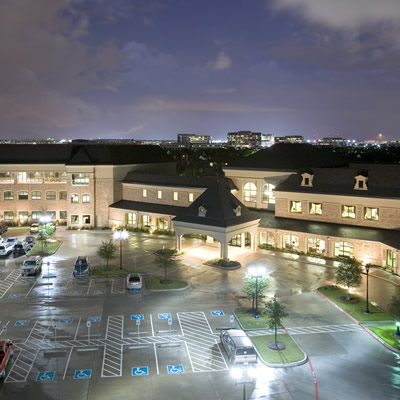
Baylor Scott & White Medical Center - Frisco
5601 Warren Pkwy , Frisco, TX, 75034
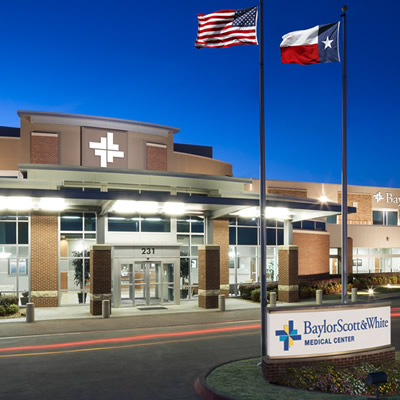
Baylor Scott & White Medical Center - Sunnyvale
231 S Collins Rd , Sunnyvale, TX, 75182
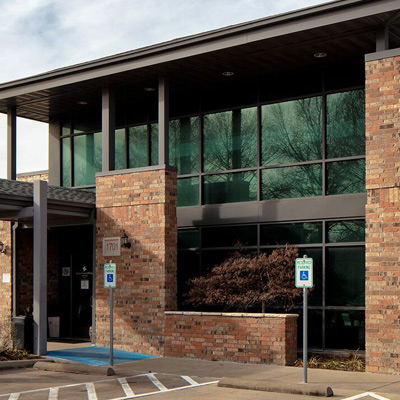
Baylor Scott & White Surgicare - Plano
1701 Ohio Dr , Plano, TX, 75093
- Monday: 6:00 am - 4:00 pm
- Tuesday: 6:00 am - 4:00 pm
- Wednesday: 6:00 am - 4:00 pm
- Thursday: 6:00 am - 4:00 pm
- Friday: 6:00 am - 4:00 pm

Baylor Scott & White Ambulatory Endoscopy Center
4708 Alliance Blvd Pavilion I, Ste 210, Plano, TX, 75093
- Monday: 7:00 am - 3:00 pm
- Tuesday: 7:00 am - 3:00 pm
- Wednesday: 7:00 am - 3:00 pm
- Thursday: 7:00 am - 3:00 pm
- Friday: 7:00 am - 3:00 pm

Baylor Scott & White Digestive Diseases Group - Plano
4708 Alliance Blvd Pavilion I, Ste 200, Plano, TX, 75093
- Monday: 8:00 am - 5:00 pm
- Tuesday: 8:00 am - 5:00 pm
- Wednesday: 8:00 am - 5:00 pm
- Thursday: 8:00 am - 5:00 pm
- Friday: 8:00 am - 5:00 pm

Baylor Scott & White Digestive Diseases and Medical Weight Loss - Plano
4716 Alliance Blvd Pavilion II, Ste 470, Plano, TX, 75093
- Monday: 8:00 am - 5:00 pm
- Tuesday: 8:00 am - 5:00 pm
- Wednesday: 8:00 am - 5:00 pm
- Thursday: 8:00 am - 5:00 pm
- Friday: 8:00 am - 5:00 pm
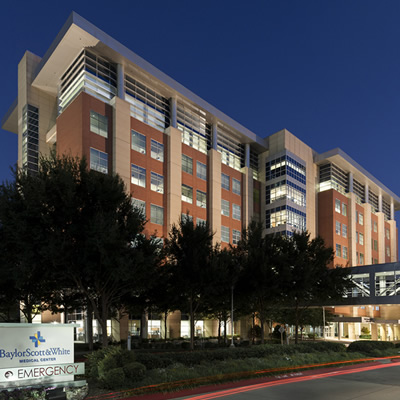
Baylor Scott & White Medical Center - Plano
4700 Alliance Blvd , Plano, TX, 75093

Texas Endoscopy - Parker Rd.
6405 W Parker Rd Ste 370, Plano, TX, 75093
- Monday: 6:00 am - 5:00 pm
- Tuesday: 6:00 am - 5:00 pm
- Wednesday: 6:00 am - 5:00 pm
- Thursday: 6:00 am - 5:00 pm
- Friday: 6:00 am - 5:00 pm

Baylor Scott & White Digestive Diseases Group - Park Cities
9101 N Central Expy Ste 300C, Dallas, TX, 75231

North Central Surgical Center Hospital
9301 N Central Expy Ste 100, Dallas, TX, 75231
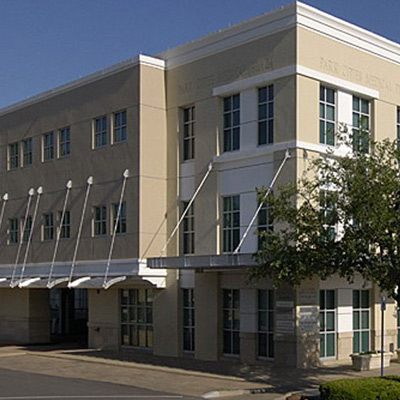
Park Cities Surgery Center
6901 Snider Plz Ste 300, Dallas, TX, 75205
- Monday: 6:00 am - 5:00 pm
- Tuesday: 6:00 am - 5:00 pm
- Wednesday: 6:00 am - 5:00 pm
- Thursday: 6:00 am - 5:00 pm
- Friday: 6:00 am - 5:00 pm

Baylor Scott & White Surgicare - Dallas
4020 Junius St , Dallas, TX, 75246
- Monday: 6:00 am - 5:00 pm
- Tuesday: 6:00 am - 5:00 pm
- Wednesday: 6:00 am - 5:00 pm
- Thursday: 6:00 am - 5:00 pm
- Friday: 6:00 am - 5:00 pm
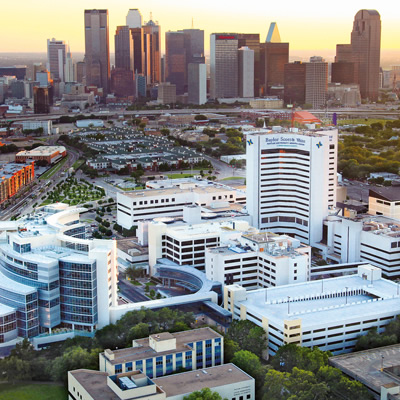
Baylor University Medical Center, part of Baylor Scott & White Health
3500 Gaston Ave , Dallas, TX, 75246
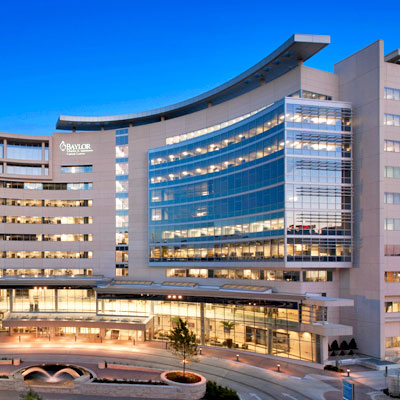
Baylor Scott & White Center for Esophageal Diseases - Sammons Center (Prearranged Appointment)
3410 Worth St Ste 235, Dallas, TX, 75246

Baylor Scott & White North Texas Colon and Rectal Associates - Dallas
3409 Worth St Ste 600, Dallas, TX, 75246
- Monday: 8:30 am - 5:00 pm
- Tuesday: 8:30 am - 5:00 pm
- Wednesday: 8:30 am - 5:00 pm
- Thursday: 8:30 am - 5:00 pm
- Friday: 8:30 am - 5:00 pm

Baylor Scott & White Center for Inflammatory Bowel Diseases
3409 Worth St Ste 600, Dallas, TX, 75246
- Monday: 8:30 am - 4:30 pm
- Tuesday: 8:30 am - 4:30 pm
- Wednesday: 8:30 am - 4:30 pm
- Thursday: 8:30 am - 4:30 pm
- Friday: 8:30 am - 4:30 pm
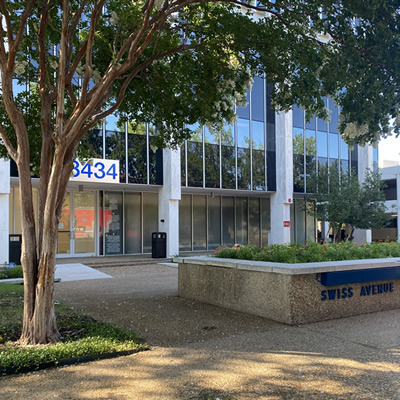
Baylor Scott & White Advanced Digestive Care
3434 Swiss Ave Ste 200, Dallas, TX, 75204
- Monday: 8:00 am - 5:00 pm
- Tuesday: 8:00 am - 5:00 pm
- Wednesday: 8:00 am - 5:00 pm
- Thursday: 8:00 am - 5:00 pm
- Friday: 8:00 am - 5:00 pm
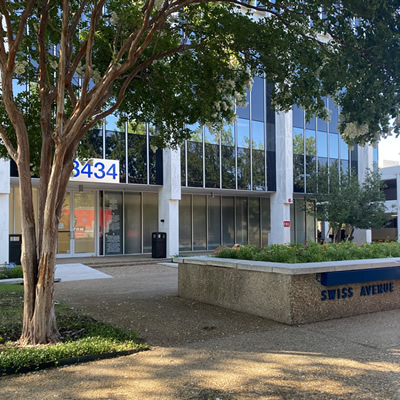
Baylor Scott & White Center for Esophageal Diseases
3434 Swiss Ave Ste 200, Dallas, TX, 75204
- Monday: 9:00 am - 5:00 pm
- Tuesday: 9:00 am - 5:00 pm
- Wednesday: 9:00 am - 5:00 pm
- Thursday: 9:00 am - 5:00 pm
- Friday: 9:00 am - 1:00 pm

Tuscan Surgery Center at Las Colinas
701 Tuscan Dr Ste 100, Irving, TX, 75039
- Monday: 6:00 am - 5:00 pm
- Tuesday: 6:00 am - 5:00 pm
- Wednesday: 6:00 am - 5:00 pm
- Thursday: 6:00 am - 5:00 pm
- Friday: 6:00 am - 5:00 pm

Lonestar Endoscopy Center - Flower Mound
1001 Surrey Ln , Flower Mound, TX, 75022
- Monday: 5:00 am - 3:00 pm
- Tuesday: 5:00 am - 3:00 pm
- Wednesday: 5:00 am - 3:00 pm
- Thursday: 5:00 am - 3:00 pm
- Friday: 5:00 am - 3:00 pm

Baylor Scott & White Medical Center - Irving
1901 N MacArthur Blvd , Irving, TX, 75061

Baylor Scott & White Medical Center - Grapevine
1650 W College St , Grapevine, TX, 76051

Lonestar Endoscopy Center - Southlake
515 S Nolen Dr , Southlake, TX, 76092
- Monday: 5:00 am - 3:00 pm
- Tuesday: 5:00 am - 3:00 pm
- Wednesday: 5:00 am - 3:00 pm
- Thursday: 5:00 am - 3:00 pm
- Friday: 5:00 am - 3:00 pm
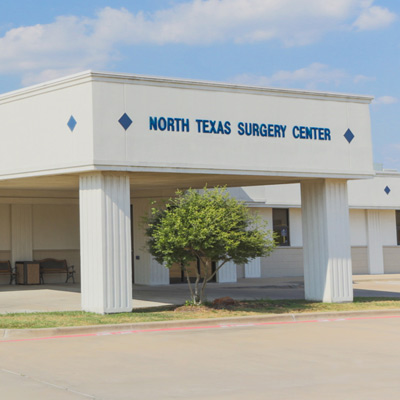
North Texas Surgery Center
7992 W Virginia Dr , Dallas, TX, 75237
- Monday: 6:00 am - 5:00 pm
- Tuesday: 6:00 am - 5:00 pm
- Wednesday: 6:00 am - 5:00 pm
- Thursday: 6:00 am - 5:00 pm
- Friday: 6:00 am - 5:00 pm
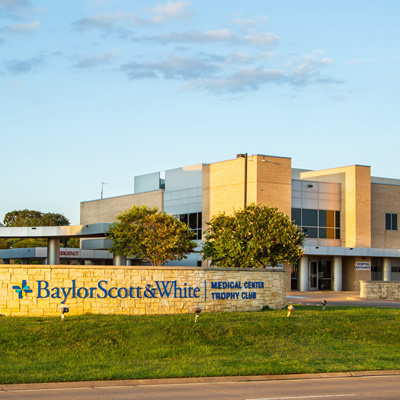
Baylor Scott & White Medical Center - Trophy Club
2850 E State Highway 114 , Trophy Club, TX, 76262

Lonestar Endoscopy Center - Keller
180 Bear Creek Pkwy , Keller, TX, 76248
- Monday: 5:00 am - 3:00 pm
- Tuesday: 5:00 am - 3:00 pm
- Wednesday: 5:00 am - 3:00 pm
- Thursday: 5:00 am - 3:00 pm
- Friday: 5:00 am - 3:00 pm

Baylor Scott & White Medical Center - Waxahachie
2400 N Interstate 35E , Waxahachie, TX, 75165
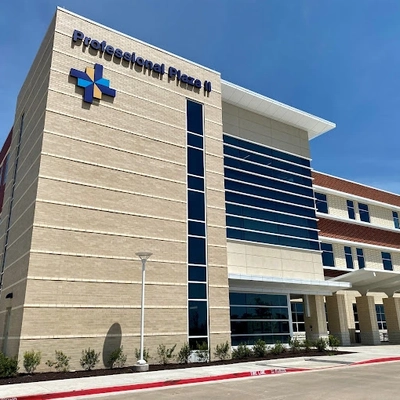
Baylor Scott & White Digestive Diseases - Waxahachie
2360 N Interstate 35E Ste 310 , Waxahachie, TX, 75165
- Monday: 8:00 am - 4:30 pm
- Tuesday: 8:00 am - 4:30 pm
- Wednesday: 8:00 am - 4:30 pm
- Thursday: 8:00 am - 4:30 pm
- Friday: 8:00 am - 4:30 pm
Frequently asked questions
-
What drinks help with bloating?
Herbal teas, particularly those containing peppermint, ginger or chamomile, can help reduce bloating. Green tea may also be helpful since it acts as a natural diuretic, removing excess water and sodium from the body.
-
Do probiotics help with bloating?
Bloating can sometimes be caused by a bacterial imbalance in the gut. This can occur temporarily as the result of taking antibiotics or can be caused by a bacterial overgrowth. Probiotics, which contain live bacteria and yeasts, can help restore a normal balance in the gut, alleviating bloating.
You can find probiotics in foods such as yogurt and fermented products, including sauerkraut, kombucha, miso and some types of pickles. If you don’t usually get enough of these foods in your diet, talk with your provider about whether an over-the-counter probiotic supplement might be helpful. -
What illnesses cause bloating?
Many different medical conditions can cause bloating, including bacterial and parasitic infections. Conditions affecting the digestive system in some way, such as irritable bowel syndrome or Crohn’s disease, are also a frequent cause of bloating.
More serious medical conditions can also cause bloating. Persistent or severe bloating can be a red flag for certain types of cancer, bowel blockages and liver disease. -
Can stress cause bloating?
Yes, stress can play a role in bloating. During periods of stress, the body produces hormones like cortisol and adrenaline, which can slow digestion, create excess gas, disrupt the balance of gut bacteria and irritate the stomach lining, all of which may contribute to bloating. Stress can also influence eating patterns, leading to habits such as overeating or choosing less healthy foods, which may make symptoms worse.
-
Does bloating cause weight gain?
No, bloating does not cause weight gain. It’s a temporary buildup of gas or fluid in the digestive system that can create a sense of fullness and make the stomach look swollen. While it may affect appearance, it doesn’t add to your actual body weight.
-
How long can bloating last?
How long stomach bloating lasts depends on what’s causing it. If it persists for several days or comes with other symptoms, such as abdominal pain, fever, unexplained weight loss or changes in bowel habits, it’s best to see a doctor to identify the cause and get the right treatment.
-
Can alcohol make you bloated?
Drinking alcohol can lead to bloating. It often causes dehydration, which can trigger water retention in the stomach and intestines. Alcohol can also irritate the digestive system, promote inflammation and increase gas production, all of which may make bloating worse.
